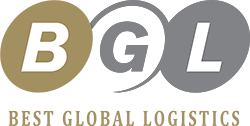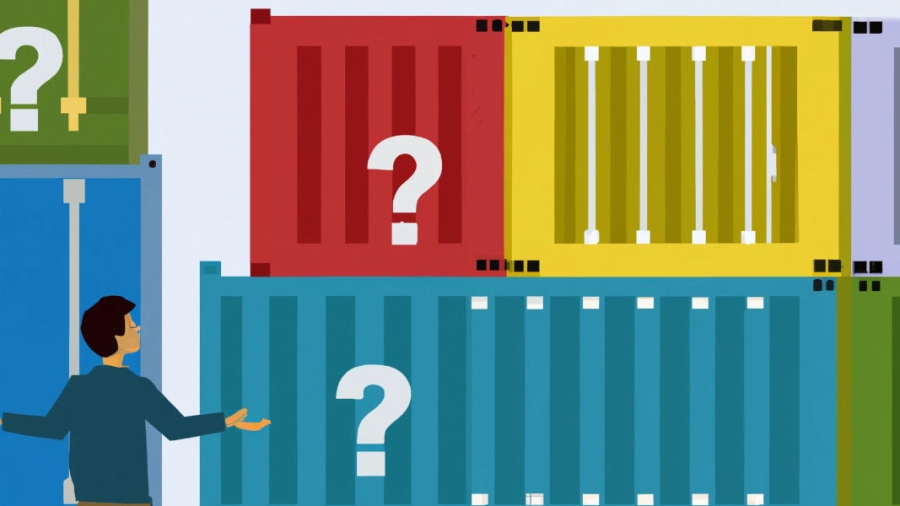The best logistics provider to cover your supply chain depends on the kind of services you need.
When choosing your company’s logistics supplier, it’s best to start by determining what types of services you need. Once your company’s logistical needs have been established, you can then select the supplier that offers the best experience, and in turn, profitability.
There are a range of aspects to consider, from the infrastructure of the logistics company to its control systems. Paying attention to the confluence of the services offered and your business needs is essential.
Recognizing Logistics Suppliers by Offered Services
Considering you’re reading this post, you’re probably already familiar with the acronym of PL preceded by a number ranging from 1 to 4. But do you know what it means?
PL is the acronym for Party Logistics and refers to companies specializing in managing the operations of supply chains.
The number that precedes the PL describes the assortment of services offered by the logistics supplier. These services could include transportation, storage, distribution, planning, and control over the entire process.
Types of Logistics Providers
1PL: Deals exclusively with the transportation of goods from manufacturers to end consumers. Usually, this operation is caried out internally by the company, investing in warehouses and cargo fleets. When referring to a service supplied by an external company, we typically refer to a company exclusively dedicated to transport services.
2PL: Refers to companies who own warehouses and offer distribution services via their own vehicles. These companies help lower manufacturer costs by offering an alternative to large investments in facilities and management, as well as offering economies of scale by managing the logistics of several clients.
3PL: This could be described as a proper logistics services provider. These companies manage the complete supply chain and aim for the optimal efficiency of logistics operations through streamlining processes and economies of scale. Commonly referred to as Third Party Logistics or outsourced logistics; its functions include issuing orders, managing warehouses, cross-docking, and reverse logistics. When a company hires a 3PL service, the company yields the control of its goods throughout the complete storage, transport, and distribution processes.
4PL: This a comprehensive and highly specialized service where the logistics supplier not only executes but also plans and designs the supply chain. Its functions range from consulting, developing projects to lower costs, and making processes more efficient, to coordinating with other suppliers who will carry out the services. To guarantee a successful relationship, the hiring company needs to share sensitive information on operations and strategic plans with the 4PL supplier.
Choosing the Right Supplier
Once you’ve defined the type of supplier that need based upon the services you require, you then need to choose a supplier that helps to boost your profitability.
It’s common to begin this search on the internet. That’s probably how you made your way to this article.
An internet search will help you find the companies offering the necessary knowledge, capacity, and reach to guarantee and efficient supply chain. In addition to considering the provider’s size, technologies, facilities, access to strategic connections, also look for recommendations from current clients and its rating in the industry.
In the following section we’re sharing some of the capabilities you should check when considering a supplier to ensure the success of your logistics operations.
Professionalism: Specialization and professional training are essential to ensure the entire process flows without mishaps. If a supplier has industry certifications, speaks well of their seriousness, care, and attention they place on their services. Being current on your sector’s information is an additional advantage to consider.
Technologies: The most advanced systems expedite the handling of goods, eliminate human error, and guarantee efficient management. A key aspect to consider is how compatible your company is with the 3PL supplier in terms of technology. This will help to avoid issues during integration that could complicate daily tasks such as order documentation, purchase order visibility, or inventory management.
Customized Attention: The supply chain and its processes must be designed based on the specific needs of the client company. Look for a supplier who shows flexibility in services and innovative solutions that are adaptive to your internal processes and business goals.
Communication: It’s important to keep information flowing and open communication makes it easier to solve problems or even take advantage of opportunities. Choose the company that offers constant attention and lets you have visibility on your cargo and processes.
Continuous Improvement: It’s not enough for a logistics supplier to offer quality service when you hire them. It must continuously train and adopt the sector’s newest trends and services for you.
Adaptability: Make sure the logistics provider has the flexibility to respond quickly to the changing logistics needs of your company and the markets’. Furthermore, at a time when sustainability is a priority of demand, choose options that follow this path. When assessing a 3PL’s proposal, make sure they can follow your values and sense of responsibility.
Hiring a logistics supplier demands analysis of your needs and researching your options.
Bear in mind that they’re more than a supplier, the logistics company you. Choose will become your partner for ensuring customer satisfaction along with increasing your company’s profitability and competitiveness.
Best Global Logistics offers comprehensive 3PL solutions involving great people, intelligent work, valuable experience, and cutting edge resources to meet the logistics goals of its clients, who can be confident their products are transported with safety and precision to their destinations.



